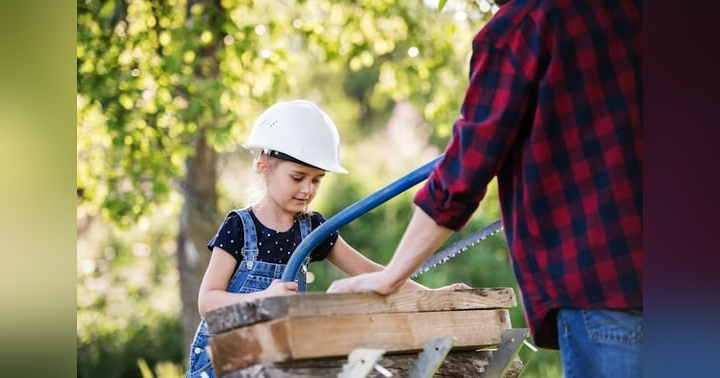How to Get Your Child to Practice Their Instrument Without the Battles

This blog post expands on the insights shared in our podcast episode, #290 Promoting Lifelong Learning: How to Get Your Child to Practice Their Musical Instrument, where we explore how parents can begin navigating challenges around music practice with more peace, patience, and practical tools.
Why Is Getting Kids to Practice So Hard?
Let’s be honest—convincing your child to practice their instrument can sometimes feel like a full-time job.
One minute they’re excited about music, the next they’re dragging their feet or melting down at the mere mention of practice.
As parents, this struggle can leave us feeling stuck between wanting to foster a lifelong skill and simply wanting a quiet, drama-free home.
If you’re feeling frustrated, you’re not alone.
But here’s the good news: with a few intentional shifts, we can transform music practice from a dreaded chore into a meaningful, even enjoyable, part of daily life.
The “I Love Music, But I Hate Practicing” Paradox
Most kids genuinely enjoy music.
They love singing, tapping out rhythms, or showing off what they’ve learned.
But the second practice becomes structured—“Sit down and run that scale again!”—the spark seems to fade. Why?
Because for children, playing is fun and free.
Practicing feels like work.
They’re wired for creativity and novelty—not monotony.
And without a sense of ownership or purpose, practice quickly feels like a burden rather than a joy.
The Real Issue: Pressure, Boredom & Lack of Autonomy
Sometimes the issue isn’t even the music—it’s the pressure.
Whether it’s our well-meaning expectations, reminders that sound more like nagging, or subtle comparisons to siblings or peers… kids feel it.
And that pressure can crush their internal motivation faster than any wrong note.
Then there’s boredom.
If practice looks the same every day—repetitive drills, long sessions, no variety—it becomes uninspiring and exhausting.
And finally, if children don’t feel like they have any say in the process, it’s no wonder they resist.
Everyone wants to feel some level of choice and control—even (and especially!) our kids.
A Better Way: How to Inspire Practice Without Pressure
Here’s how we can start navigating challenges around music in a more empowering, less stressful way:
✅ Start Small & Stay Consistent
Don’t expect 45-minute sessions right away.
Start with 10-15 minutes of focused practice.
Use a timer.
Celebrate consistency.
Progress matters more than perfection.
🎯 Make It a Game
Gamify practice by setting goals and rewarding progress.
Stickers, timers, music apps, or friendly competition (like who can finish their session first) all help make it fun.
🎵 Let Them Choose
Give your child a say.
Let them pick a favorite piece, decide what to work on first, or even choose when to practice.
Autonomy builds ownership.
💬 Practice With Them
Sit beside them.
Ask questions.
Clap along.
Offer encouragement.
When it becomes a shared experience, practice feels more like connection than correction.
👩🏫 Choose the Right Teacher
Not all teachers are a good fit.
The right one motivates, encourages, and knows how to tailor their approach to your child’s unique learning style.
💡 Reframe Mistakes
Mistakes aren’t failures—they’re part of the process.
Help your child develop a growth mindset by celebrating effort, persistence, and improvement.
🌟 Connect Practice to Real Life
Whether it’s performing at a family event or simply playing a song for fun, give their practice purpose.
Show how music fits into the bigger picture of their life.
🧡 Keep Communication Open
Check in regularly.
Ask how they feel about their lessons.
Listen when they’re frustrated.
Make space for honest conversations without pressure or guilt.
What If It’s Still Hard?
There will be off days.
There may be tears.
That’s okay.
This journey isn’t about raising concert pianists. It’s about building habits of consistency, resilience, and self-discipline. It’s about nurturing a lifelong love for learning—and yes, that includes learning to navigate hard things with grace.
When we shift from control to connection, from pressure to partnership, we not only help our children grow… we grow too.
For more strategies, stories, and practical insights, listen to our full conversation in episode #290. We talk about exactly how to reframe practice, set better expectations, and navigate these challenges as a team.
You're doing better than you think. This is a journey—keep going.
RESOURCES:
Let us help you in your extraordinary family life journey.
- JOIN GREG'S 90-DAY HEALTH & FITNESS CHALLENGE!
- Get Rachel's Family Systems & Charts
- Join the 28-Day Challenge for Moms
- Rachel’s Must-Read Booklist for Well-Read Moms
- Greg's Recommended Reading List for Parents & Youth
- Join the Be The Man Coaching and Tribe
- Download the Be The Man app on iOS or Android
- Take the Be The Man 7-Day Challenge.
- Follow us on Instagram: @worldschoolfamily or @greg.denning
- Gather with us at the World School Family (Beach & Farm) Resort in Portugal
- Read our reviews here: https://podcast.extraordinaryfamilylife.com/reviews/
- --- Send in a voice message: https://podcasters.spotify.com/pod/show/extraordinary-family-life/message












